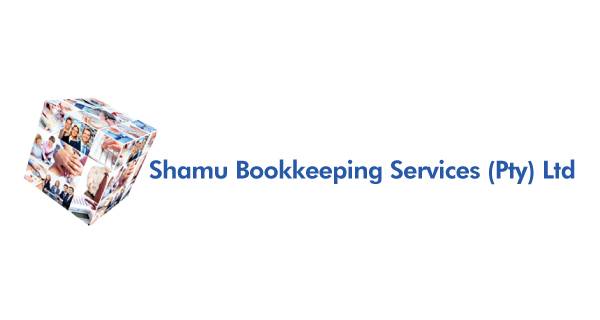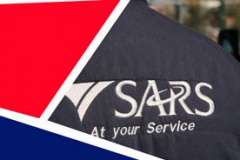Shamu Bookkeeping Services

| Monday | 08:00 am - 05:00 pm |
|
| Tuesday | 08:00 am - 05:00 pm |
|
| Wednesday | 08:00 am - 05:00 pm |
|
| Thursday | 08:00 am - 05:00 pm |
|
| Friday | Closed | 08:00 am - 05:00 pm |
| Saturday | Closed |
|
| Sunday | Closed |
|
| Public Holidays | Closed |
|
REVIEWS
PHOTO GALLERY
ABOUT US

Shamu Bookkeeping Services (Pty) Ltd was established in 2009 as a Close Corporation and converted to a Private Company in 2011. Our Management Teams consists of Mike, Natalie and Sharon together with the support staff at our offices in Fourways and the Vaal Triangle.
We specialise in the ongoing support of Small Medium Enterprises, One man businesses and Personal Tax Clients. Our business is run on five fundamentals:
- Honesty
- Accuracy
- Efficient
- Client Satisfaction
- Value for money
As with any industry, our business activities are regulated by SARS. In order to remain compliant with SARS and to ensure that we provide a service that is based on the rules and legislations as set out in the Republic of South Africa, we belong to the following professional bodies:
- SAIBA
- SAIT
- SAIPA
- SAGE
SERVICES
Bookkeeping and Accounting Services
We prepare from various source documents such as customer invoices, supplier invoices and bank statements a full set of management accounts on a regular monthly basis.
At Shamu Bookkeeping, we strive to provide affordable services. Click here to get an idea of the cost of some of our services.
Your source documents are captured in Sage Pastel Partner. Once all source documents have been captured, we will furnish financial reports to the client for their perusal.
Once a year and/or at the clients request we compile a set of Annual Financial Statements, which is a report created annually that quantifiably describes the financial viability of any company. This includes a statement of income, statement of changes in net worth and a balance sheet. It also often includes a cash flow statement. These elements should be tracked on a monthly basis for the most accurate reporting.
The Annual Financial Statements are prepared by our professional team of accountants and where determined by the public interest score (PIS) we retain the services of registered Auditors, that are registered members of South African Institute of Professional Accountants (SAIPA) as prescribed in the Companies Act. The Annual Financial Statements are required for any submission to SARS with your company / close corporation ITR14 tax return. We aslo offer Payroll Services.
Annual Financial Statements
Annual Financial Statements is a legal requirement and must comply with prescribed standards in accordance with the International Financial Reporting Standards (IFRS) or IFRS for SME’s. This is a worldwide reporting tool that enables third parties such as Banks and SARS to determine how well a business has performed over a period.
Financial statements are also a tool that you, as the business owner can use to measure your business performance. As a business owner you want to know if your business is making a profit and is solvent. All major banks and independent lenders would require Annual Financial Statements when they consider funding in the form of either an overdraft or a business loan which can be used to either expand your business or as short term working capital.
When preparing Financial Statements, we collate information that has been processed into a trial balance. We also confirm all the balances in the Balance Sheet with supporting schedules such as bank statements, stock sheets, loan accounts and asset registers of the company. Compliance with the tax authority (SARS) is also confirmed and the balances shown in the Financial statements.
Personal Income Tax Services
In South Africa, individuals tax starts with what a person receives and accrues and includes this as part of their gross income for a particular tax year. Tax years run from March to February of the next year, for example: 1st March 2016 to 28th February 2017 is known as the 2017 tax year. Certain exemptions or deduction may be claimed against the gross income, in our preparation of your personal income tax return (ITR12)
Our registered tax professionals specialise in the preparation and submission of your tax return or provisional tax that may include calculations of allowances you received or Capital Gains Tax and Fringe Benefit Tax.
Income tax is the normal tax which is paid on your taxable income.
Examples of amounts an individual may receive, and from which the taxable income is determined, include –
- Remuneration (income from employment), such as, salaries, wages, bonuses, overtime pay, taxable (fringe) benefits, allowances and certain lump sum benefits.
- Profits or losses from a business or trade.
- Income or profits arising from an individual being a beneficiary of a trust.
- Director’s fees.
- Investment income, such as interest and foreign dividends.
- Rental income from property rental.
- Income from royalties’ payments.
- Annuities.
- Pension income.
- Certain capital gains.
Professional Business Income Tax Services
All business is required to register for Business Income Tax with the South African Revenue Service (SARS), this registration is compulsory regardless what type of entity the business is – Private Company (Pty) Ltd; Close Corporation – CC; Trusts; Sole Proprietor, Body Corporate’s
All businesses are also provisional tax payers and are required to submit these returns before the end of August and February every year to SARS.
Even dormant business entities that have not traded or have received any income or revenue are required to submit business tax returns (ITR14).
Since the inception of the Tax Administration Act 2011, it is a requirement that all entities, with the exception of Micro- Business are required to submit with their Business Income Tax returns a full set of Annual Financial Statements for each tax year as supporting documents to this SARS submission
SARS may after submission of your business tax return (ITR14) may select the business for verification and issue a ITR14SD return to confirm and verify the information submitted in ITR14 as a supplementary return
The current company taxation rate is 28% and trusts is 45%
Small business corporations (SBC) do enjoy a bit of tax relief, this subject to certain conditions being met, a reduced taxation rate from 0% – 28% is applied; this rate is dependable on the amount of business’ taxable income for that tax year
The ins-and-outs of VAT
Whether your business is registered as a Close Corporation, Sole Proprietorship or Private Company, there are various tax requirements you have to meet and one of these could be value-added tax (VAT). Here is a broad explanation of what VAT is and how to meet your tax obligations as a small business.
Although this will add to your administration workload, it can also benefit your company in that you’ll be able to claim VAT back on certain VAT claimable expenses.
Registering for VAT
Businesses with a turnover (or a forecasted turnover) of more than R1 million in the past 12-month period (regardless if this is a calendar or tax year) are legally obliged to register as a VAT vendor with SARS. A business can also register voluntarily if turnover in a 12-month period has exceeded R50 000.
Should any business “trade online” the compulsory VAT registering threshold is only R50 000 in the past 12-month period.
As tax practitioners, we can also assist taxpayers in receiving a tax clearance certificate, should the business be tax compliant with SARS, as many organisations ask for this prior to dealing with a new service provider.
SARS Disputes, Objections or Appeals
What is subject to a dispute with SARS either by means of an objection or an appeal?
A taxpayer who feels that he is agrieved by any SARS assessment may object or create a dispute against any SARS assessment
A SARS assessment is the determination of an amount of tax liability or tax refund, by way of self assessment by the taxpayer or assessment issued by SARS.
All SARS assessments bear within the notes of the SARS assessment, the allowed time frame granted to the taxpayer to lodge any dispute against that SARS assessment. This time frame must be adhered to, however in special circumstances and with certain acceptable reasons to SARS, an application may be made to SARS to allow the dispute after this required time frame indicated on the SARS assessment has expired.
It is in the interest of all taxpayers to retain the services of a reconised tax professional to assist with any SARS dispute, as this is a legal process and mistakes with any SARS dispute can have vast effects to the taxpayer’s tax position and cannot be easily reversed except through the process of appeal through the Tax Court.
New Company Registrations
Since 1 May 2011, the Companies and Intellectual Property Registration Office (CIPRO) ceased to exist and was replaced by the Companies and Intellectual Property Commission (CIPC). The New Companies Act came into being at the same time, changing the way business owners register their companies.
The Act stipulates that no new close corporations (CC) can be registered, but those registered prior to 1 May can continue to operate as CCs.
The Companies Act provides for two categories of companies, namely non-profit and profit companies. Each of the different business entities under these categories has specific requirements in terms of the documentation that is required.
Non-profit companies:
A company incorporated for public benefit or another object relating to one or more cultural or social activities, or communal or group interests.
The income and property are not distributable to its incorporators, members, directors, officers or persons related to any of them.
Profit companies:
Profit companies are categorised as companies without restrictions on the transferability of their shares and that do not prohibit offers to the public (larger public companies), and companies that do contain restrictions on the transferability of their shares and that prohibit offers to the public (smaller private companies).
They may take one of four different forms: a personal liability company, a state-owned company, a public company and a private company.
Personal liability companies:
The directors and past directors are jointly liable with the company for any debts and liabilities arising during their periods in office.
The company name ends with the word ‘incorporated’.
State-owned companies:
This is a company defined as a ‘state-owned enterprise’ or a company owned by a municipality.
The names of a state-owned company must end with the expression ‘SOE Ltd’
Public companies:
The definition of a public company is largely unchanged.
The only difference is that a public company now only requires one member for incorporation compared to seven members in the past.
Private companies:
While comparable to private companies under the old Act, these are similar to previous close corporations.
Some of the changes made to private companies include fewer disclosure and transparency requirements, no longer being limited to 50 shareholders, and a board that must comprise at least one director.
The name of a private company must end with the expression ‘Proprietary Limited’ or ‘(Pty) Ltd’.
Required Documents:
- Certified copies of all the director(s) RSA ID documents or valid passports for non- residents.
- 4 proposed names of the new company.
- Proposed registered and postal address of the new company.
- Business description of what you intend to trade in or what service you intend to provide.
- No of shareholders and details of shareholders (should this be different to the directors in point 1 above).
- A signed CIPC power of attorney allowing us to act on your behalf when registering your new company with CIPC (our company registration dept. will provide this document when registering your new company).







